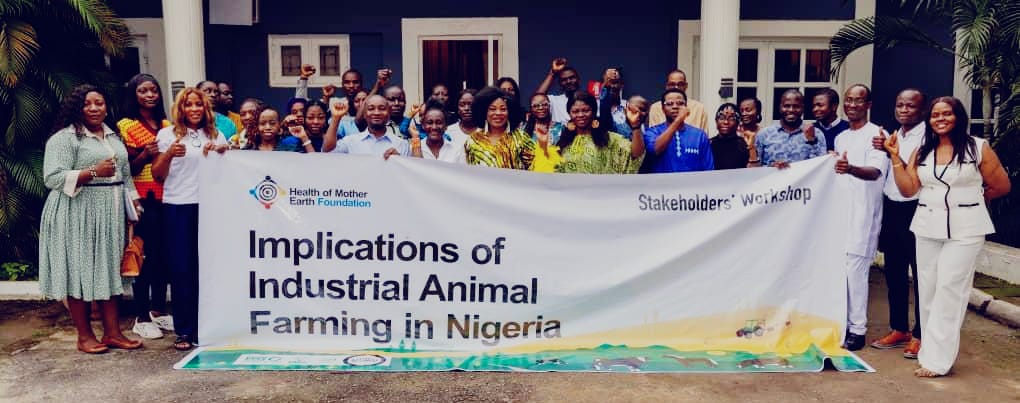Participants at the stakeholders meeting
Participants at a one-day stakeholders workshop have called on the Federal Government to revoke the approval granted to JBS for operation in Nigeria due to documented history of environmental crime including massive deforestation, greenhouse gas emissions of up to 70 million tons -worsening climate change and socio-economic disruption in local communities.
They urged policy makers to recognise that proper food sovereignty cannot be achieved through corporate-controlled systems that create dependency, but only through food sovereignty where communities control their own food systems, seeds, and agricultural processes.
“Nigeria must choose between a sovereign, sustainable food system controlled by our farmers or a corporate-controlled, extractive model that will fundamentally undermine our nation’s agricultural foundation, environmental health, and food sovereignty.”, they said.
“The choices we make today will determine whether Nigeria’s food system serves its people or corporate interests, and we must always put our people first, over profits.”, they added
The participants drawn from the government, academia, civil society, local farming communities, environmental groups, the private sector and the media from Nigeria and Kenya deliberated on the critical implications of JBS S.A.’s $2.5 billion investment plan in Nigeria, which includes establishing six industrial facilities across multiple states.
The participants observed that the Nigerian government has pledged to provide the necessary and favorable economic, sanitary and regulatory conditions to support the project even as JBS SA has identified Ogun State as a key investment hub due to its strategic location and infrastructure, and some other states in Nigeria are positioning themselves as beneficiaries of the project, seeing as it has huge potential for revenue generation.
In a communique, the participants also called on government at all levels to reject industrial animal farming models that threaten food sovereignty, and instead invest in supporting smallholder farmers through policy frameworks, financial assistance, and infrastructure development that empowers local food systems.
They urged the Federal and State Governments to conduct comprehensive, independent Environmental Impact Assessments for any proposed industrial farming projects, with mandatory community consultation and transparent public scrutiny before approving such investments.
They also urged the Government and Nigerian citizens to actively support local farmers and food systems, choose locally-produced foods over industrial products, and advocate for healthy, culturally appropriate food choices that preserve our indigenous food heritage.
“Government to implement strict regulations on multinational food corporations, including mandatory accountability mechanisms, environmental safeguards, and protection of community rights against displacement and exploitation.”, the communique highlighted
The participants also advised academic and research institutions to prioritise research into sustainable, agroecological farming methods and expose the true costs of industrial animal farming on public health, the environment, and social equity.
The communique highlighted the role of civil society organizations and media and enjoined them to continue monitoring and exposing the activities of industrial farming corporations, educating the public about food sovereignty, and advocating for policies that protect Nigeria’s agricultural independence.
The participants called on international development partners to support Nigeria’s transition toward sustainable, farmer-led food systems rather than enabling corporate capture of agricultural resources.

